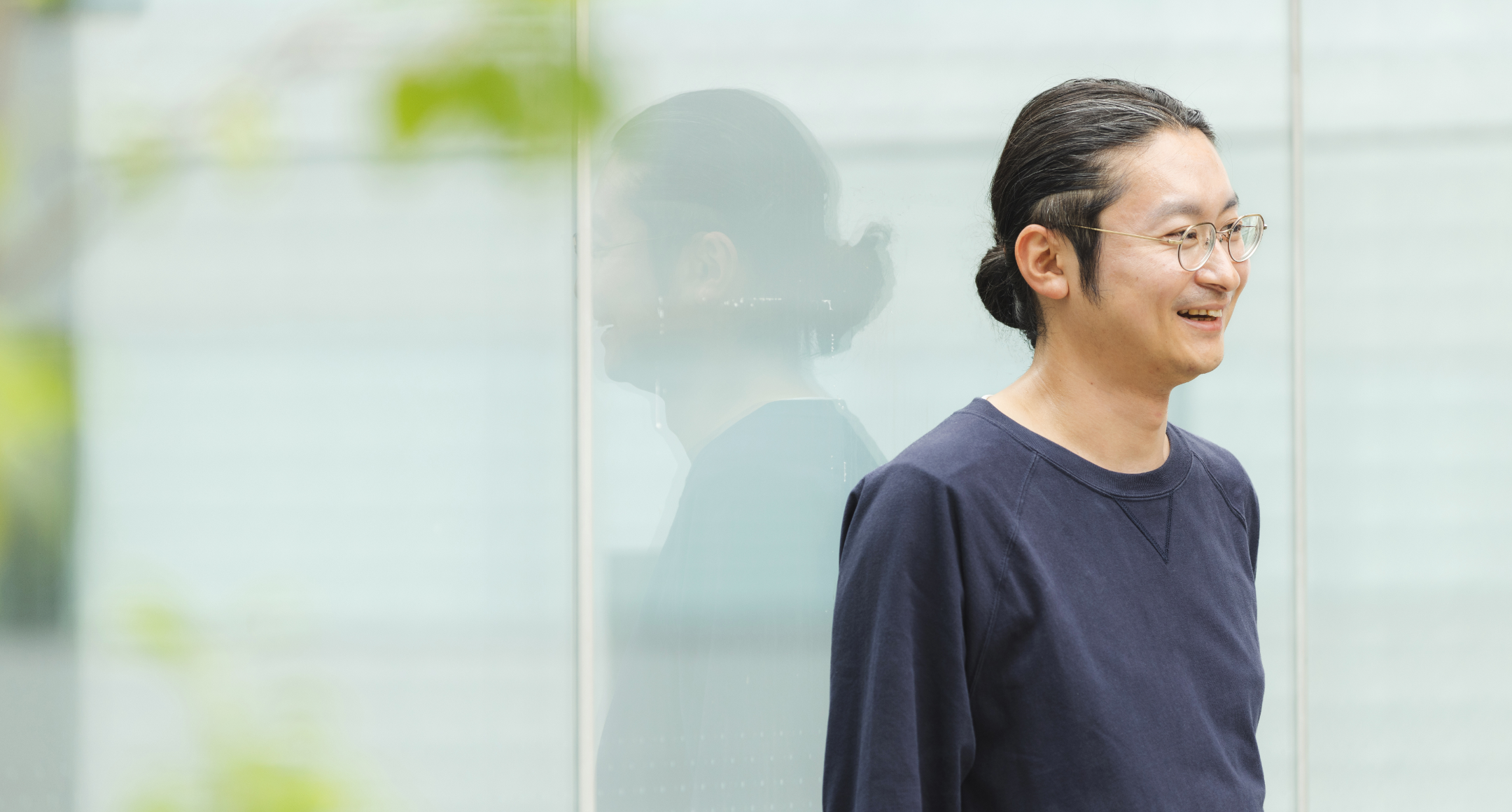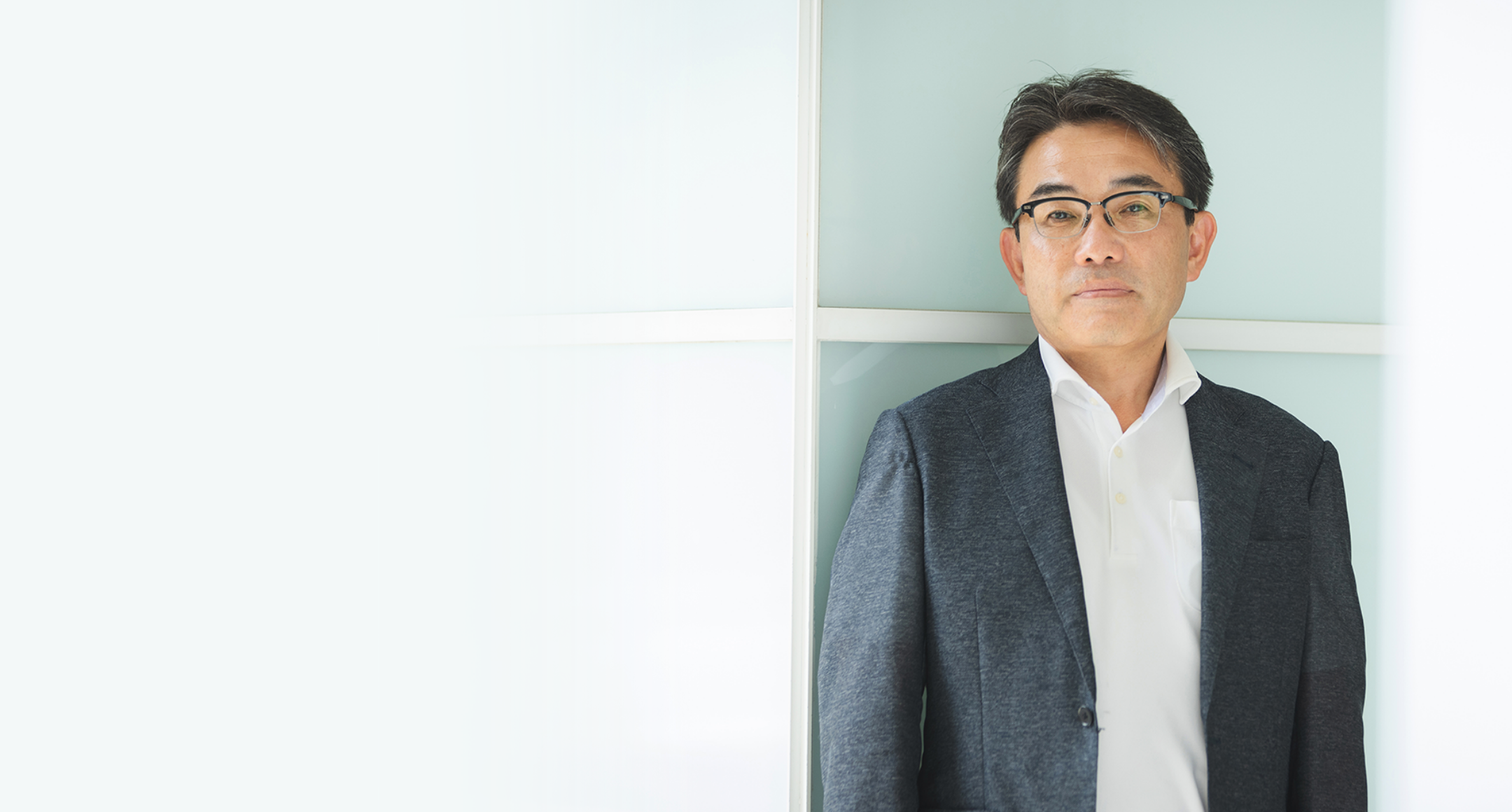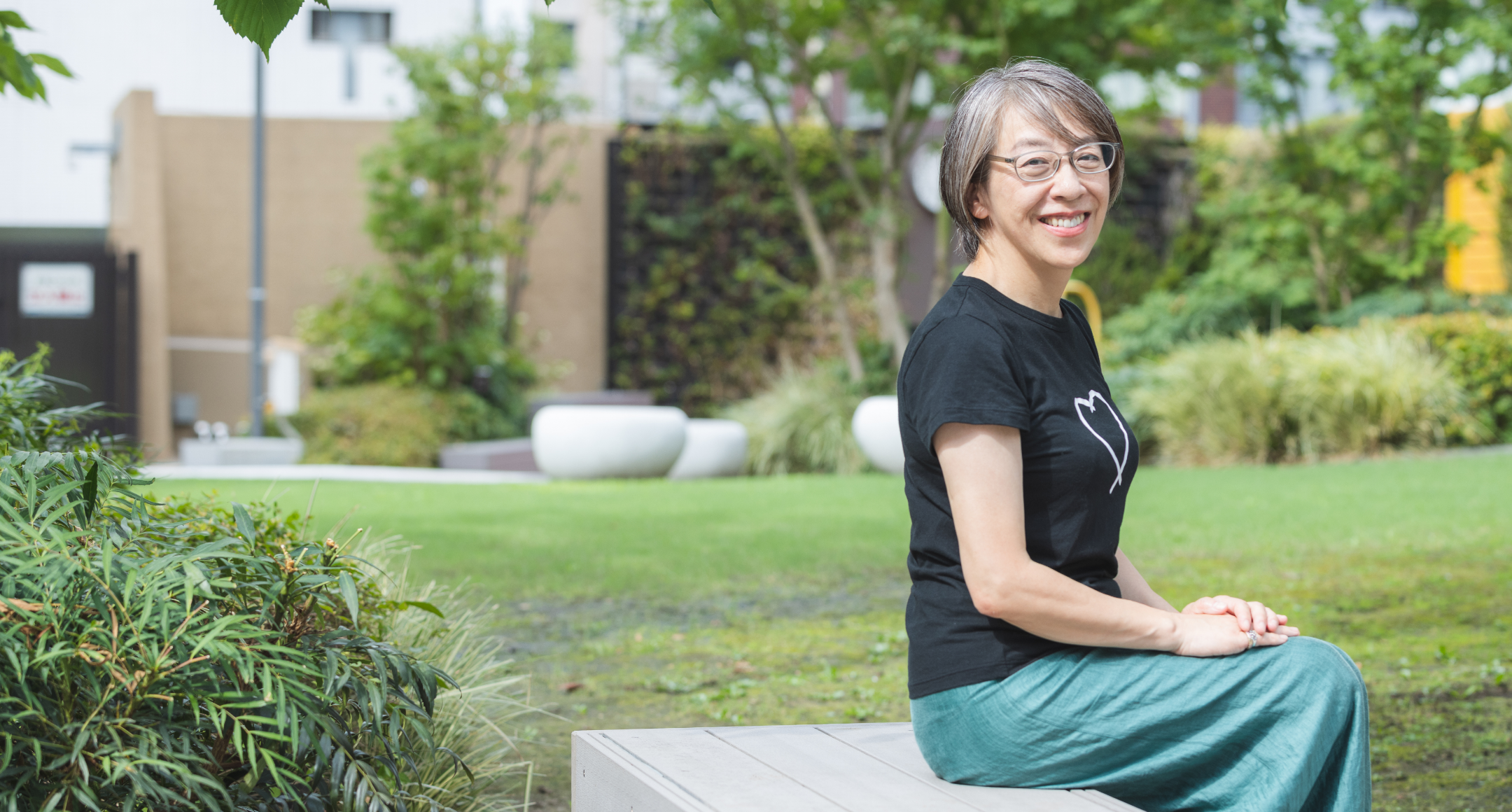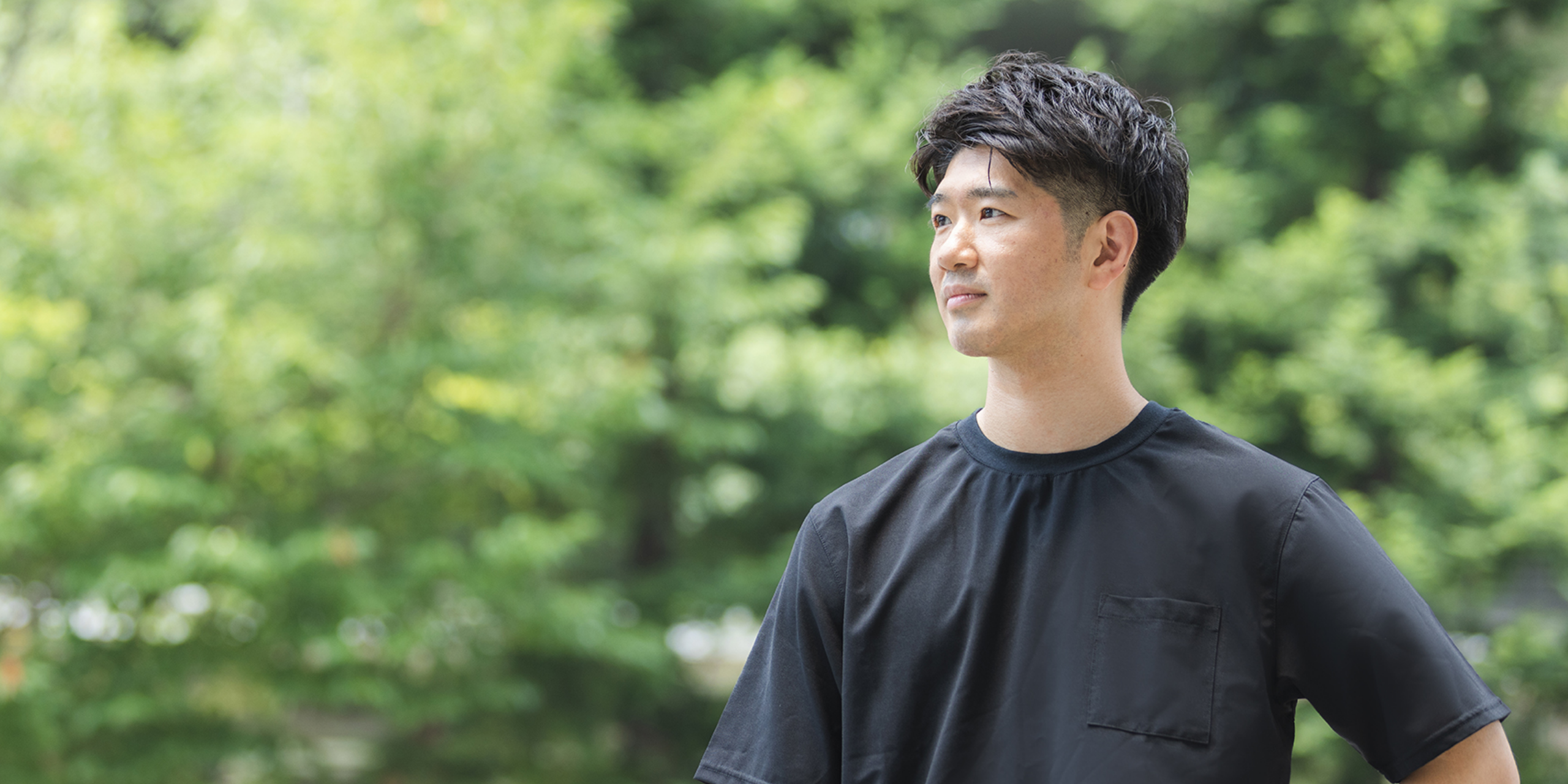
Improving Software Is the Key to Becoming a Tourism-based Nation
-
Etsuro Takahashi
- Director and
Chief Investment Officer
Joined Hoshino Resort Asset Management in 2019 after working on multiple mixed-use redevelopment and urban development projects for a domestic general developer. Since joining the company, involved in the acquisition, operation, and sale of hotels.
Beyond the Dynamism and Cause of "Building a Community"
Please tell us about your background before joining the company.
I have worked for two real estate developers in the past and this is my third company. In my first assignment at the first company, I was mainly in charge of asset management of private placement funds while the aftereffects of the Lehman Shock still lingered. Later, as the real estate market gradually improved, I became a planner and developer, and have been working in the development field ever since. The development was not a model of repeated single sales (simple transactions), but rather I was in charge of the first five years of a large project to build a property for completion 10 or 20 years hence. The scale of the project was such that it would not be an exaggeration to describe it as "building a community," so it was a job worth completing even if it took 10 years, and I felt that it was a very dynamic job that would bring new value to the city, so I was highly motivated to work on it.
I was also involved in the development of an area close to one of Japan's major terminal stations, which was a wonderful job in terms of making Tokyo a more attractive city to compete with other major Asian cities in a country where there are fears of a slowdown in national growth due to population decline.
However, because it was a huge project, the number of stakeholders increased, such as the government, city residents, and real estate owners, and this characteristic makes it difficult to be flexible and speedy. It was an industry I had always dreamed of working in, but as I worked and my ideal way of working gradually took shape, I wondered if there was a job that would be a better fit for me. I began to think about it and sought a new place to live, and here I amtoday.
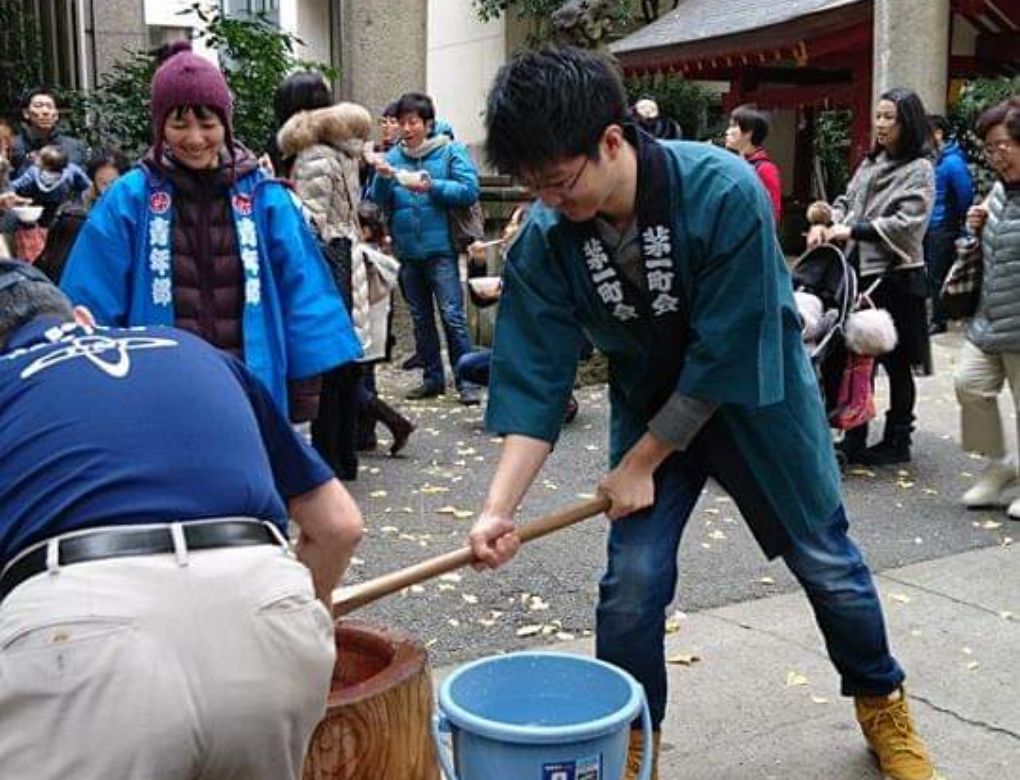 In the job before last. Participating in a local festival with community members
In the job before last. Participating in a local festival with community membersWhy did you start working at Hoshino Resort Asset Management?
One of my ideals in working is to be able to make decisions quickly and work with speed. This was very important to me when I was looking for a new place to work. It was then that I looked through the disclosures of the company and found a director in his 30s. I felt that Hoshino Resort Asset Management must be an organization where decision-making isbe working from a unique perspective, rather than it being a seniority-based organization. I assumed that it was an environment in which even younger employees might be able to play amore active role than where I was then and decided to join the company. In fact, even after joining the company, that impression stayed with me. Even if a consultation is still in the idea stage, the representative, Mr. Akimoto listens to us, and as a result of the discussion, we may drop the priority level, or if the organization decides to go ahead, we will move forward to finalization. Because the size of the organization makes it easy to talk face-to-face, communication is compact and no unnecessary work occurs.
I see. This "speed of decision-making" is an attraction that is typical of this company.
Yes, and another thing that I feel is unique about this company is its culture of "raise your hand and you will find opportunities everywhere." I was promoted to General Manager about two years after joining the company and to Director in my 30s. During an interview with the president when I started here, I was asked about my future career image, and I expressed my desire to become a general manager. Later, after gaining experience, I was appointed General Manager, but at the base of my philosophy is "leave it to those who want to do it." I was able to participate in the decision-making process from the time I joined the company, and my opinion was sought in the discussion process, regardless of my title. I was already close to my ideal job when I joined the company, but being able to be more involved in the decision-making process as a General Manager or Director was what I wanted, and I found it extremely rewarding. In addition, what I had hoped in being promoted to a management position was that I would be in a position of more responsibility, which would give me more external credibility and make it easier to build a system for gathering information. I think that if more information is gathered, there will be more opportunities to consider moves that will have an impact on business and management.
This characteristic is true not only for our company but also for the entire Hoshino Resorts Group. Hoshino Resorts adopts a candidacy system for promotions to general manager. In other words, you might say that the program is designed in an employee-first manner, taking into account individual wishes and desires for growth.
Of course, complete freedom would cause confusion, but I find it very attractive that there is an environment where people can raise their hands and an atmosphere of support is fostered.
Attractiveness and Potential of Operational Assets
In your previous jobs, you dealt with residential and commercial assets, but what is the attraction of hotel assets?
In short, it is an operational asset whose profitability depends on the ability of the operator. It is very interesting that high profitability and high real estate prices can be formed even in locations and facilities that are unthinkable from the point of view of real estate agents. For example, Hoshino Resorts operates a facility called "Aomoriya," and when the property price is calculated based on the hotel's income capitalization, the price is higher than that of real estate in the city center. This is something that does not arise with office or residential properties, and is an easy example of how value is created through service and operations. We believe that the tourism industry is one of the few growth industries in Japan, and we believe that hotel assets still have potential to be fulfilled. For example, there are many offices in rural areas that are in good locations but have lost their competitive edge. I think converting such properties into hotels is an interesting idea because I think the business potential is viable and it will contribute to creating a lively atmosphere.
What initiatives do you think are needed to further boost Japan's tourism industry?
I believe that the Hoshino Resorts Group has a role to play in expanding the supply of risk money not only in urban centers but also in rural areas. By creating hotels in rural areas and supporting the tourism industry in the local region, we can also contribute to regional development by increasing the number of people interacting with tourism. By creating a model for REITs to acquire such properties, we believe this will lead to the creation of a trend that will promote investment in areas that have not seen much investment up until now. In this way, I would like to take on new challenges with the spirit that, as a private company, we can help revive the Japanese economy by boosting the industry and continuing to generate earnings.
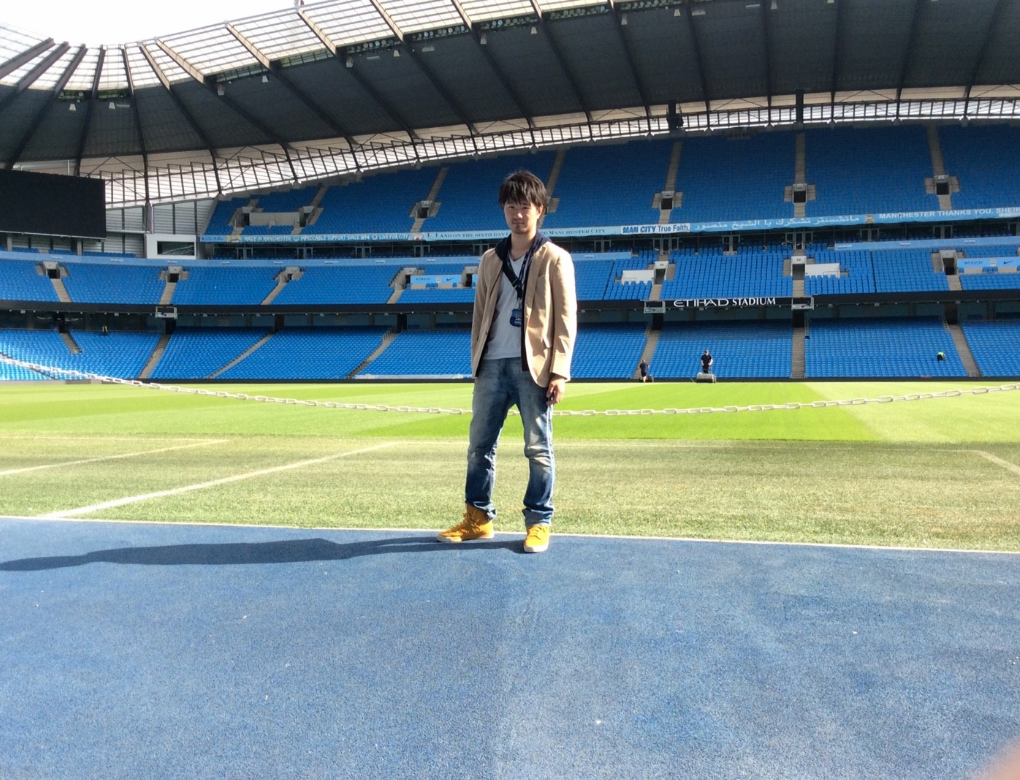 A snapshot from a private solo trip across England.
A snapshot from a private solo trip across England.Japan's Tourism Industry can be More Valuable by Improving its "Quality"
What do you feel are the issues in Japan's tourism industry?
I believe that the Japanese tourism industry is currently seeking quantity over quality. We do need a simple target like "let's aim for 60 million inbound tourists!," but that is not the only way to get out of the war of attrition. If we do not propose tourism and hotels that emphasize quality rather than quantity, we will lose our sustainability and may strangle ourselves. So we must provide cultural and natural enrichment and set prices commensurate with the services and value. Not everything has to be the same, but it is also true that a one-of-a-kind facility resulting from a demand for quantity will not differentiate itself. I believe that this awareness must spread more widely throughout the Japanese tourism industry.
So while quantitative goals are easy to align, they are not enough to maximize value?
I believe that the difficult task of improving the attractiveness of hotels and enhancing their ability to attract customers in a sustainable manner by pursuing "quality" is an area where the private sector can engage in friendly competition and share their knowledge and expertise. A world where the only competition is price is a war of attrition. At Hoshino Resorts, we believe that latecomers have an advantage in a hardware-dependent model, while first mover companies have an advantage in a software-driven model, so we are focusing on adding value by improving our services, which is one of our strengths deriving from our long history. However, as I mentioned earlier, I do not believe this is the only correct answer. I believe that Japan's tourism industry can realize more of its potential if each company can focus its wisdom and engage in friendly competition to become hotels of choice. I would also like to make REIT-owned properties "attractive investments" to create facilities that will be chosen by more customers.
What are some of the challenges and prospects you would like to take on in the future?
Based on the current acquisition price, our current asset base amounts to approximately 200 billion yen. And our most recent goal is to grow that to 300 billion yen by 2026. In order to achieve this goal, we are working hard "to find good hotels and execute investments," and "to create mechanisms to invest in good hotels." And, moreover, after that, I would like to take on the challenge of developing new products, along with a continued commitment to growing Hoshino Resorts REIT.
This is only an example, but if there is an investor who wants to invest only in a specific region, there may be a way to create a fund that can meet such needs and improve the investment environment, or there could even be a fund specializing in overseas real estate or hotels. Our sponsor, Hoshino Resorts, is a hotel operator, but we are in the asset management business, which is part of the financial and real estate industries, so in order for us to create value within the group, we need to increase the size of our funds or increase the types of funds in order to increase income from management fees, so I believe that this is the way to contribute to the group. I think it is important to develop earning power as an asset management company. I would love to take on such challenges that have yet to be seen.
Youth Interview
We have two people who both belong to the Investment Management Division, and share the commonality of having worked as real estate developers in the past. Ms. Ono, who recently returned to work after maternity and childcare leave, will serve as interviewer.
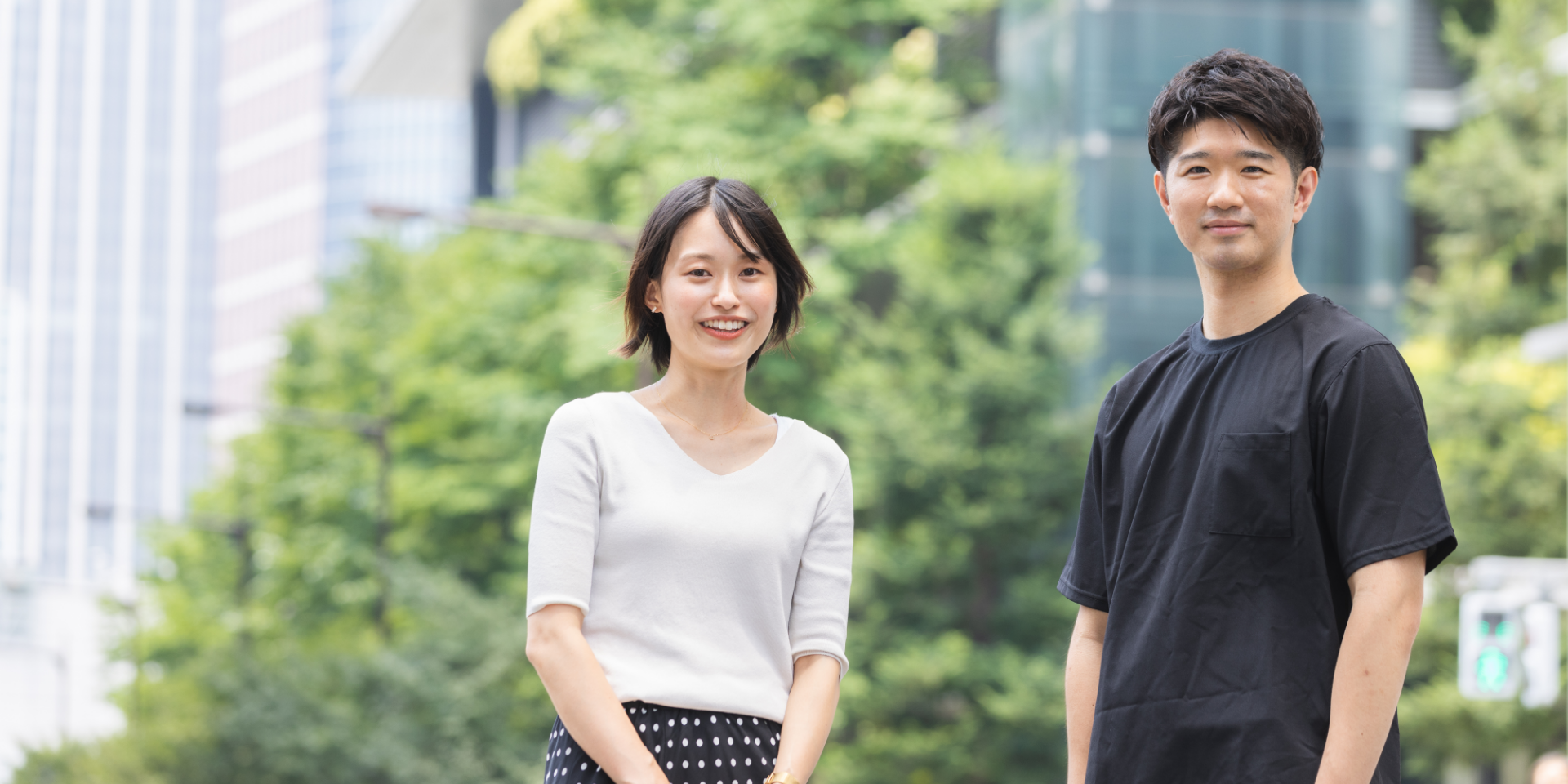
Ono: I have the impression that you are good at everything, Mr. Takahashi, but are there any tasks you are not good at?
Takahashi: Of course there are (laughs). I like to expand my frontiers, to think of new businesses and strategies, and to challenge areas I have not yet done, but I am not so good at jobs where I have to solemnly advance on end in a narrow area of expertise. In a company organization, I think areas can be divided into "offensive" and "defensive" work, but I am better at offensive work. Saying it that way, I may not be very good at paperwork and clerical work. Rather, if I don't have to do that kind of work, I would rather leave it to someone who is good at it (laughs).
Ono: How do you find a breakthrough when you are troubled with how to do something at work?
Takahashi: In the first place, as in any case being a member of society, to report and consult immediately. When I report on it, a weight is lifted off my shoulders at once. It is very important not to hold too much to yourself. When thinking about how to overcome something, I don't think I can do everything on my own, so I think it is most important to consult with the right people at the right time. If you understand who you should ask for input at what juncture on a daily basis, it will help you when the time comes. However, at the end of the day, it is your own passion that makes you work, so while consulting with others, there may be times when you ask yourself, "Is there really no other way left?" Mentally, in many cases it worked out better when I took a step back and thought to myself "It's not a matter of life and death, so let's take it easy." Since I work with such a mentality, if in a case where there is no right answer and I am lostI have repeatedly prioritized “choosing the path that looks more interesting.” But again, except for the president, if you report it, your responsibility is already lightened (laughs). The best thing to do is to first report when you think something is wrong.
Ono: I recently took maternity and childcare leave, and now I am allowed to work from home to balance work with childcare, but I know that from a management perspective it is often difficult to make adjustments, such as securing replacement staff for employees on leave. While I appreciate it very much, it seems like a difficult task for an organization of about 40 people...
Takahashi: First of all, the basic premise is that a situation where operations are increasing is a great thing, because it is a sign that the company is growing. In addition to that, I would like to talk about the fact that we are still a growing company that has only been in business for 10 years, so our organization and systems are still in their infancy, and I am aware of the difficulties we are facing. But as times change, and the way companies should be and the standards change with them. At that time, I believe that companies that cannot apply standards will simply be eliminated. The idea that "the system is difficult to administer" is nonsense in itself; it is something that must be administered, and something that should be addressed in essence. This is not limited to maternity and paternity leave; we believe that the ability to adapt to changes in society is itself a company's competitiveness, and we want to continue to be a company that can work with sincerity. I believe that this will not only make us the company of choice for job seekers and employees, but also, as a side effect, will lead to trust from society and stakeholders.

- Ms. Ono
- Asset Management Department 2,
Investment Management Division
Youth Profile
Joined in 2020. Currently looking after management operations at Asset Management Department 2. After a year of maternity and childcare leave, currently working in the same position while raising children, utilizing full remote and shortened work hours.
